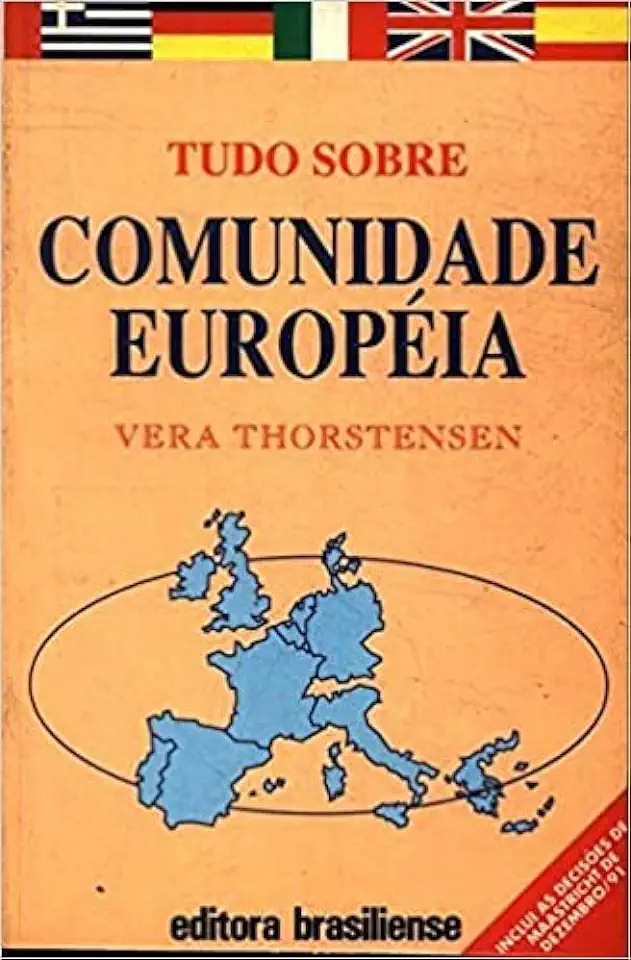
All About the European Community - Vera Thorstensen
All About the European Community: A Comprehensive Guide to the EU
Introduction
In today's interconnected world, understanding the European Community (EC) is more important than ever. As the largest economic and political union in the world, the EC plays a vital role in shaping global affairs. This comprehensive guide provides an in-depth look at the EC, its history, institutions, policies, and challenges.
A Brief History of the European Community
The EC traces its roots back to the European Coal and Steel Community (ECSC), which was established in 1951 by the Treaty of Paris. The ECSC was created to pool the coal and steel resources of France, Germany, Italy, Belgium, the Netherlands, and Luxembourg. This was seen as a way to prevent future wars between these countries and to promote economic cooperation.
The ECSC was successful in achieving its goals, and in 1957, the Treaty of Rome was signed, establishing the European Economic Community (EEC). The EEC created a common market for goods, services, and capital among its member states. It also established a common agricultural policy and a common external tariff.
The EEC continued to grow and evolve over the years, and in 1993, the Maastricht Treaty was signed, creating the European Union (EU). The EU is a political and economic union that is based on the principles of democracy, human rights, and the rule of law.
The Institutions of the European Community
The EU is governed by a number of institutions, including the European Parliament, the European Council, the European Commission, and the European Court of Justice.
The European Parliament is the directly elected legislative body of the EU. It is composed of 751 members who are elected by citizens of the EU member states. The European Parliament has the power to pass laws, approve the EU budget, and hold the European Commission accountable.
The European Council is the highest political body of the EU. It is composed of the heads of state or government of the EU member states. The European Council sets the overall political direction of the EU and makes decisions on major issues such as foreign policy, security, and economic policy.
The European Commission is the executive body of the EU. It is composed of 28 commissioners, who are appointed by the European Council. The European Commission is responsible for proposing legislation, implementing EU policies, and managing the EU budget.
The European Court of Justice is the highest judicial body of the EU. It is composed of 28 judges, who are appointed by the European Council. The European Court of Justice interprets EU law and ensures that it is applied uniformly throughout the EU.
The Policies of the European Community
The EU has a wide range of policies that cover a variety of areas, including trade, agriculture, environment, transportation, and social affairs.
The EU's trade policy is based on the principles of free trade and fair competition. The EU is the world's largest trading bloc, and it has free trade agreements with many countries around the world.
The EU's agricultural policy is designed to support farmers and ensure a stable food supply. The EU provides subsidies to farmers and sets quotas on agricultural production.
The EU's environmental policy is focused on protecting the environment and promoting sustainable development. The EU has adopted a number of directives and regulations to reduce pollution, protect biodiversity, and combat climate change.
The EU's transportation policy is designed to improve the efficiency and safety of transportation. The EU has invested in infrastructure projects such as roads, railways, and airports. It has also adopted regulations to reduce traffic congestion and pollution.
The EU's social affairs policy is focused on promoting social justice and improving the quality of life for EU citizens. The EU has adopted a number of directives and regulations to protect workers' rights, promote gender equality, and combat poverty.
The Challenges Facing the European Community
The EU faces a number of challenges, including economic inequality, climate change, and terrorism.
Economic inequality is a major challenge for the EU. The gap between the rich and the poor has been growing in recent years, and this has led to social unrest and political instability.
Climate change is another major challenge for the EU. The EU is one of the largest emitters of greenhouse gases in the world, and it is committed to reducing its emissions. However, this will be a difficult task, as it will require significant changes to the EU's economy and lifestyle.
Terrorism is a third major challenge for the EU. The EU has been hit by a number of terrorist attacks in recent years, and this has led to increased security concerns. The EU is working to improve its security measures, but it is a difficult task, as it must balance the need for security with the need for civil liberties.
Conclusion
The European Community is a complex and evolving entity. It faces a number of challenges, but it also has a number of strengths. The EU is a major player in the global economy, and it is committed to promoting peace, democracy, and human rights. The EU is a work in progress, but it is a project that is worth supporting.
Enjoyed the summary? Discover all the details and take your reading to the next level — [click here to view the book on Amazon!]